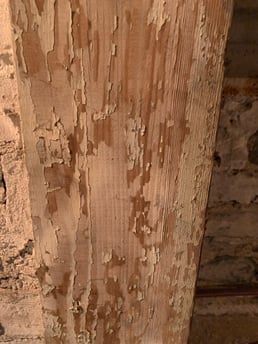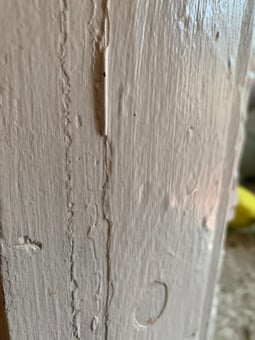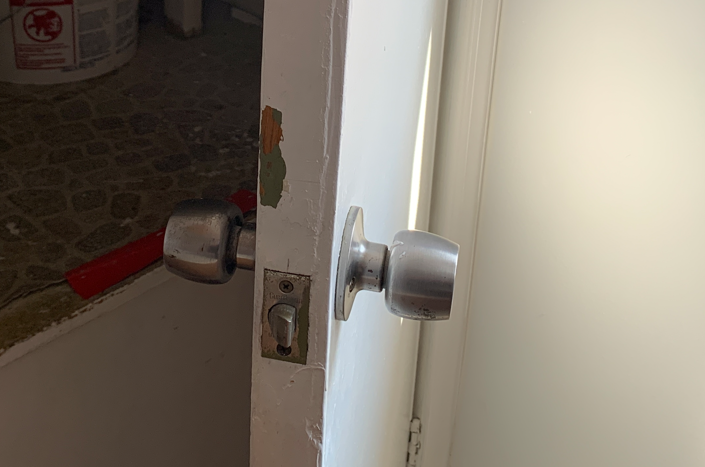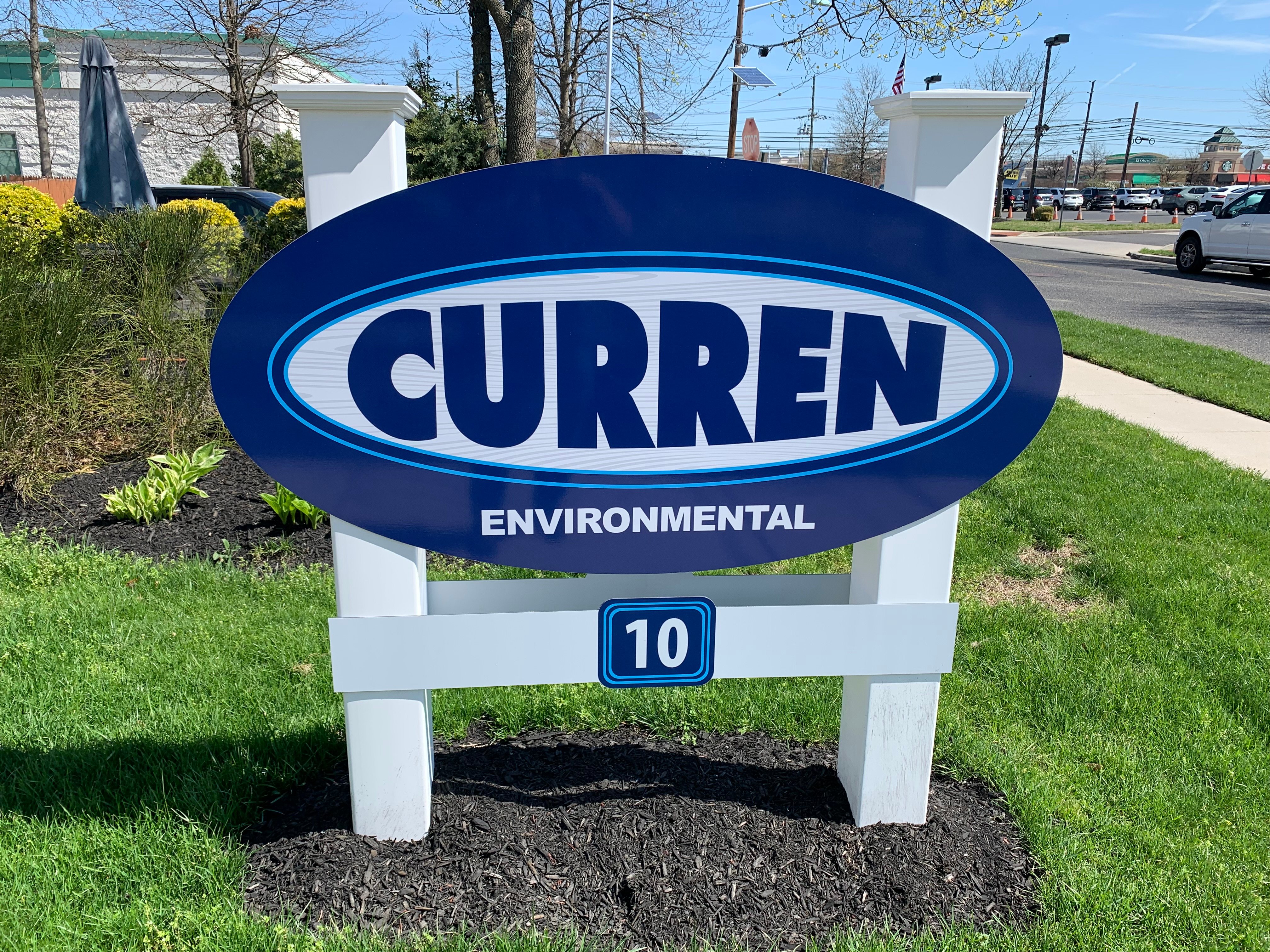The New Jersey Lead Safe law is making lead a concern for rental units, both tenants and landlords. NJ’s New lead-based paint law went into effect on July 22, 2022, and affects ALL pre-1978 rental properties. So if you are a landlord of a unit built before 1978 and you have not received a lead paint designation, you are subject to the law. The law is also being called the Lead Based Paint Hazard Law.


How Can Curren Environmental help with compliance with lead inspections?
We understand common causes of paint deterioration and we will help you identify areas with problems (BEFORE WE INSPECT), it is essential to understand the cause of the damage to repair the paint. Our inspectors will talk you though what areas are common failures, which you can look for and address prior to inspection. When Curren does inspect and if we find deteriorated paint, we will look for the cause of the deteriorated paint, so when you repair the issue it will not return. Common causes of paint failure include:
Moisture damage
Friction and impact
Poor surface preparation
Deterioration of the building material
All single-family, two-family, and multiple-rental dwellings must be inspected.
This new lead law is being referred to as, New Jersey’s Lead Safe Certification and requires lead-paint inspections, visual &/or dust wipes on all nonexempt rental properties at tenant turnover or before July 22, 2024. This means 1st inspection must be completed by July 22, 2024. The inspections are perpetual. A lead-safe certificate is good for two (2) years but can last as long as three (3) years before a reinspection is needed if the tenant remains in the unit from the 1st 2 years of issuance of the lead-safe certificate.
What does the Lead Safe Certification lead law require of a property owner?
If you rent a pre-1978 property that does not qualify for one of the exemptions, beginning July 2022, you will be required at a minimum to have a visual lead-paint inspection. When we say the minimum, some towns have children with elevated lead blood levels, so units in these municipalities also require that lead dust wipe samples be obtained as part of the inspection.
Visual Inspection: Just as at sounds like, visual lead inspections look for hazards. How does one identify lead-based paint hazards? Lead-based paint hazards is deteriorating lead-based paint peeling, chipping, chalking, cracking, or damaged paint. Lead dust can form when lead-based paint is scraped, sanded, or heated. Dust also forms when painted surfaces bump or rub together. Lead chips and dust can reside on surfaces and objects that people touch.
We examine all painted building components for deteriorated paint or visible surface dust, debris, or residue. We look for paint chips or dust from painting activities that were not cleaned up and paint residue on floors.
Where does the NJ lead safe certification require inspection be performed in a rental unit?
The initial lead inspection including subsequent periodic lead-based paint inspection applies to interior spaces within dwellings. This is interpreted to include any common areas that tenants of a rental dwelling have access to, including hallways and basements, in two-family and multiple dwelling rentals. In short you are inspecting interior areas, exterior areas such as porches are not part of the inspection.
Who can perform lead inspections for rental units?
The lead inspection can only be done by
1) Municipal local agency inspection program,
2) NJ DCA-certified Lead Evaluation contractor hired by the municipality
Or
3) the property owner can hire directly a NJ DCA Certified Lead Evaluation contractor to provide the required inspection services.
No matter who the lead licensed individual is, there is a fee for the lead inspection. The lead inspection fee is outside of the $20 fee the lead law requires the municipality to collect on a per-unit basis.
Visual Lead Inspections
Landlords can hope for the best outcome from the lead inspection, which is that no lead-based paint hazards are found during the inspection, and the local agency or the DCA-certified lead evaluation contractor can certify the dwelling unit as lead-safe on a form prescribed by the department of Community Affairs.
A failure of the lead inspection would be that lead hazards are found, then the property owner must address the hazard. Properly addressed by means of either lead-based paint abatement or lead-based paint hazard control methods. Additionally, if the lead evaluation entity (municipal or private) finds that a lead-based paint hazard exists in a dwelling unit upon conducting the inspection under this law, the lead evaluation contractor or permanent local agency shall notify the Commissioner of Community Affairs.
The photo below is a friction surface. Old door, multiple coats of paint and freshly painted. When you open and close the door the door rubs, the newer white paint has rubbed off and an older layer of paint (green) is visible. This would fail an inspection.

Lead hazards that are addressed require a lead re-inspection. Specifically, the lead law states that “upon completion of correcting any lead-based paint hazard identified during the visual Lead Safe Certification Inspection”, the Lead evaluation contractor or permanent local agency shall conduct a follow-up inspection (visual &/or dust wipes) of the unit to certify that the hazard no longer exists.
The lead law places documentation and notification requirements on property owners. Owners are required to provide copies of all Lead Safe Certifications (per unit) and leases to the DCA inspector during their five (5) year multiple dwelling inspection. Property owners are also required to provide copies of a current or newly issued Lead Safe Certificate to new residents specific to the unit they will be renting as part of the lease documents.
If a resident resides within the unit during the re-lead safe certification renewal cycle for three (3) years, the resident must sign a copy of the Lead Safe Certification. This documentation must be maintained by the owner and made available during future DCA inspections. Compliance is mandatory under the law failure to follow failure to comply can incur fines of up to $1000 per unit per week.
What to do to get ready for compliance? Call Curren Environmental, we have been consulting on environmental issues in real estate since the 1990s.
888-301-1050
Do you think your property is exempt from lead inspections? The property must meet the following criteria:
- The property has been certified to be free of lead-based paint,
- The property was originally constructed during or after 1978,
- The rental unit is in a multiple dwelling that has been registered with the DCA as a multiple dwelling for at least 10 years either under the current or a previous owner and has no outstanding lead violations from the most recent cyclical inspection performed on the multiple dwelling under the “Hotel and Multiple Dwelling Law,”
- Is a single-family or two-family seasonal rental dwelling that is rented for less than 6 months duration each year by tenants that do not have consecutive lease renewals; VRBO rentals fit this definition as long as the lease is shorter than 6 months per rental.
- Dwellings that have been certified to be free of lead-based paint under N.J.A.C. 5:17-3.6(b).
- The unit is owner-occupied.

Pro Tip
If you have not tested for lead-based paint and the property is pre-1978 original construction, the law states you must assume it is lead-based paint.

